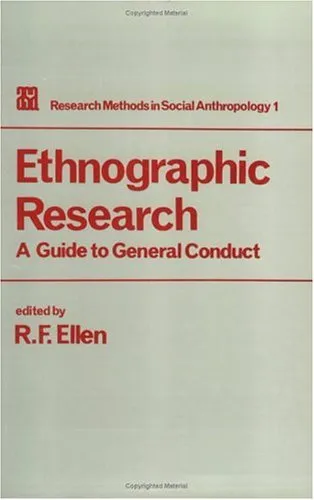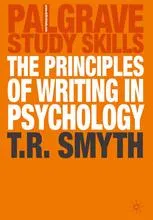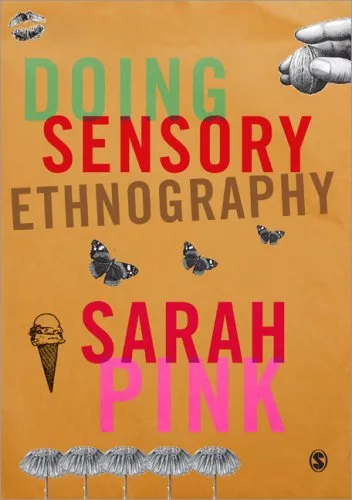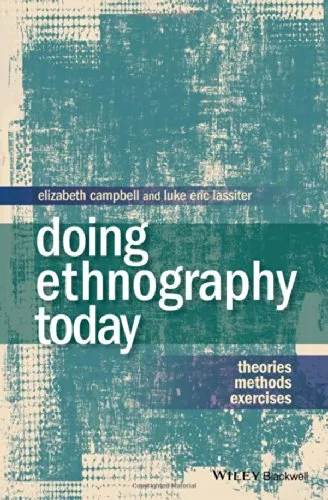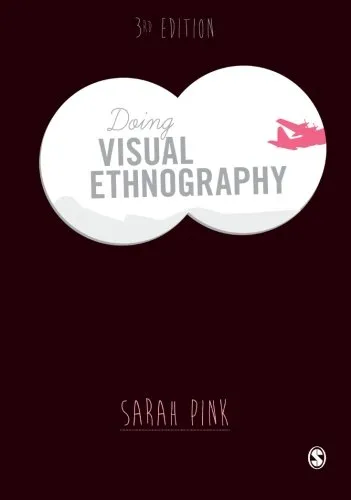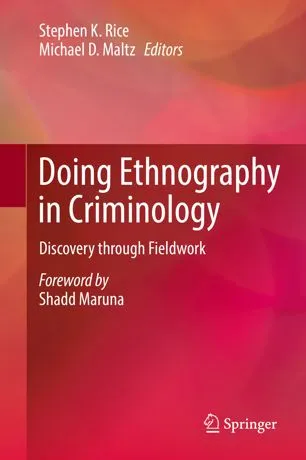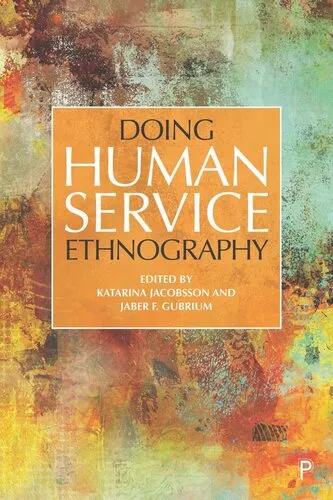Doing Ethnography: Studying Everyday Life
4.5
Reviews from our users

You Can Ask your questions from this book's AI after Login
Each download or ask from book AI costs 2 points. To earn more free points, please visit the Points Guide Page and complete some valuable actions.Related Refrences:
Introduction to Doing Ethnography: Studying Everyday Life
Ethnography offers a window into the complexities and nuances of everyday social life. In Doing Ethnography: Studying Everyday Life, authors Dorothy Pawluch, William Shaffir, and Charlene Miall provide readers with a comprehensive and engaging guide to conducting ethnographic research. This book is an essential resource for anyone interested in exploring the intricacies of human behavior, cultural practices, and social interactions through the lens of immersive fieldwork.
The text balances theoretical insights with practical guidance, making it accessible to both novice and veteran researchers. By drawing upon rich examples and real-world applications, the authors skillfully demonstrate how ethnographic methods can uncover the lived experiences and social meanings that are often missed by other research approaches. Written with clarity and depth, Doing Ethnography is an indispensable tool for students, academics, and professionals seeking to deepen their understanding of qualitative research methodology.
Detailed Summary of the Book
In Doing Ethnography, the authors take readers step-by-step through the process of ethnographic research, from defining research questions to presenting findings. They emphasize the importance of developing an ethnographic sensibility—an ability to observe, listen, and interpret the subtle meanings embedded in daily life. The book is divided into chapters that sequentially address different aspects of the ethnographic process, ensuring readers develop both theoretical knowledge and practical skills.
The early chapters focus on the foundational principles of ethnography: its emphasis on naturalistic settings, the importance of immersion, and the role of the ethnographer as both an observer and participant. The authors highlight the ethical dimensions of ethnography, discussing challenges such as gaining access to field sites, establishing trust with informants, and maintaining confidentiality.
Subsequent chapters delve into the tools and techniques of data collection, including participant observation, in-depth interviewing, and reflexive journaling. The authors consistently underscore the value of triangulation—using multiple data sources to ensure the reliability and validity of findings. The latter part of the book is devoted to data analysis, writing, and presenting ethnographic works, providing actionable advice on how to weave field notes and theoretical insights into compelling narratives.
The book also addresses the evolving nature of ethnography, acknowledging the challenges and opportunities presented by digital and virtual ethnographic methods. Throughout the text, the authors include examples of ethnographic studies and personal anecdotes that bring the process to life for readers.
Key Takeaways
- Ethnography is both an art and a science, requiring creativity in observations and systematic rigor in data collection and analysis.
- Developing strong relationships with participants is essential for obtaining rich, meaningful data.
- Reflexivity is critical—ethnographers must constantly reflect on their positionality, biases, and impact on the research setting.
- Ethnographic research is most valuable when it captures the ordinary and everyday aspects of life, which often reveal deeper cultural and social meanings.
- The process of writing in ethnography is as important as fieldwork itself—it requires crafting narratives that balance descriptive detail with analytic depth.
Famous Quotes from the Book
"To do ethnography is to embed oneself in another world, learning its logic, its rhythms, and its meanings through the shared experiences of its members."
"The ethnographer must cultivate the ability to see the extraordinary in the ordinary, recognizing the hidden structures and social rules that shape daily life."
"Ethnography is not merely about observing what people do but understanding why they do it and what it means to them."
Why This Book Matters
In an era where data-driven approaches dominate much of research, Doing Ethnography serves as a timely reminder of the unique value of qualitative studies. By immersing themselves in the environments they study, ethnographers can uncover insights that quantitative methods often overlook. This text demonstrates how ethnography enriches our understanding of human behavior by interpreting both the micro-level interactions and macro-level structures that shape society.
The book is also a critical resource for ethical research practices. It explores how ethnographers navigate complex issues such as informed consent, representation, and the power dynamics inherent in fieldwork. By raising these important questions, the authors ensure that readers approach ethnography not just as a method but also as a deeply responsible and reflective practice.
Furthermore, Doing Ethnography equips readers to adapt to the rapidly changing landscape of ethnographic research, offering guidance on how to study virtual environments and online communities. This makes it a particularly relevant resource for the 21st century, where the digital and physical worlds increasingly intersect.
The book ultimately matters because it provides a powerful framework for understanding the lived experiences of individuals and the cultures they inhabit. By showing readers how to systematically study and interpret everyday life, it fosters curiosity, empathy, and a deeper awareness of the social world.
Free Direct Download
You Can Download this book after Login
Accessing books through legal platforms and public libraries not only supports the rights of authors and publishers but also contributes to the sustainability of reading culture. Before downloading, please take a moment to consider these options.
Find this book on other platforms:
WorldCat helps you find books in libraries worldwide.
See ratings, reviews, and discussions on Goodreads.
Find and buy rare or used books on AbeBooks.
1236
بازدید4.5
امتیاز0
نظر98%
رضایتReviews:
4.5
Based on 0 users review
Questions & Answers
Ask questions about this book or help others by answering
No questions yet. Be the first to ask!

